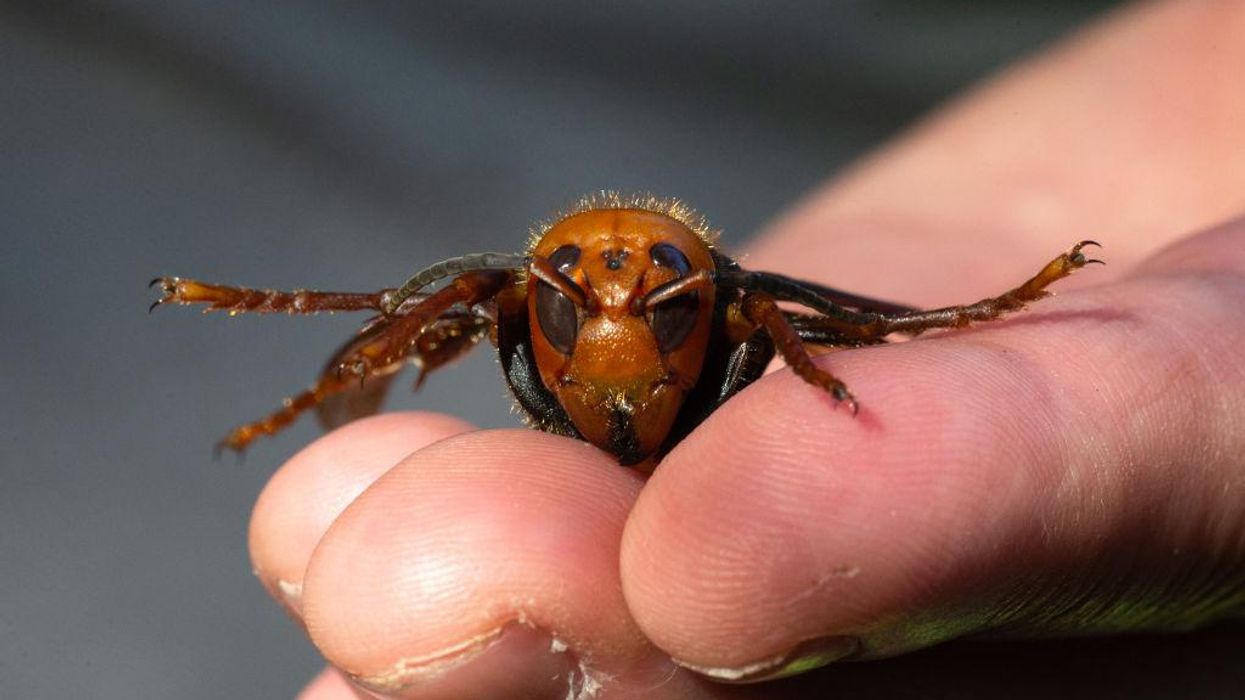
A sample specimen of dead giant hornet from Japan in July 2020. (Karen Ducey/Getty Images)

An Asian giant hornet nest has been located in the state of Washington about a quarter of a mile away from the location where someone reported spotting one of the insects on Aug. 11, according to the Washington State Department of Agriculture.
"The Washington State Department of Agriculture (WSDA), Oregon Department of Agriculture (ODA), and USDA's Animal Plant Health Inspection Service (USDA APHIS) found the first Asian giant hornet nest of 2021. The nest was in a rural area east of Blaine, Wash., about one-quarter mile from where a resident reported a sighting of a live Asian giant hornet on Aug. 11, the first of 2021," according to WSDA's news release dated Aug. 19.
The so-called "murder hornets," can reach a length of 2 inches (5 cm), according to Reuters.
Asian giant hornet nest - August 19 2021www.youtube.com
Three of the large insects were tagged with a tracking device between Aug. 11-17 and while one of the bugs led to the nest, one slipped out of the tracker and one was never found, according to WSDA.
"WSDA entomologists will now develop their plans to eradicate the nest, most likely next week," the release noted.
Asian giant hornets, which are the biggest species of hornet, prey on insects, including honeybees.
"Asian giant hornet attacks and destroys honey bee hives. A few hornets can destroy a hive in a matter of hours. The hornets enter a 'slaughter phase'" where they kill bees by decapitating them. They then defend the hive as their own, taking the brood to feed their own young. They also attack other insects but are not known to destroy entire populations of those insects," according to the WSDA.
"While they do not generally attack people or pets, they can attack when threatened. Their stinger is longer than that of a honey bee and their venom is more toxic. They can also sting repeatedly," WSDA noted.
Although one nest has been found, WSDA said that there could be more out there. People are asked to report suspected sightings of the bees.